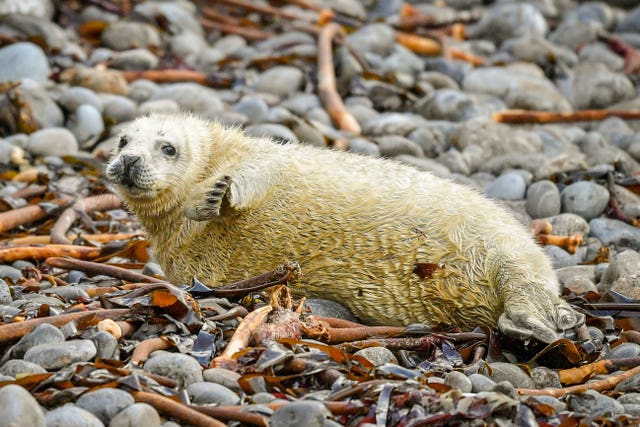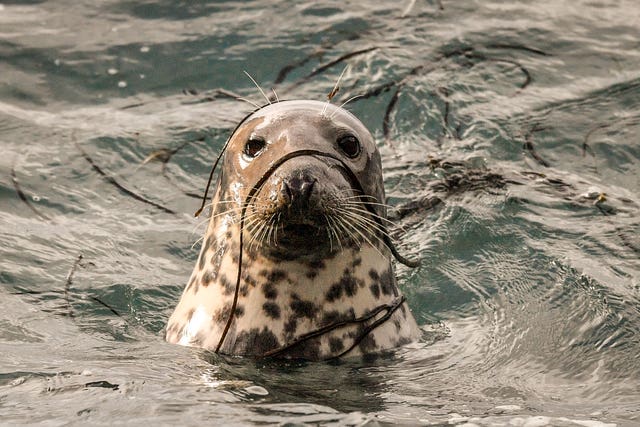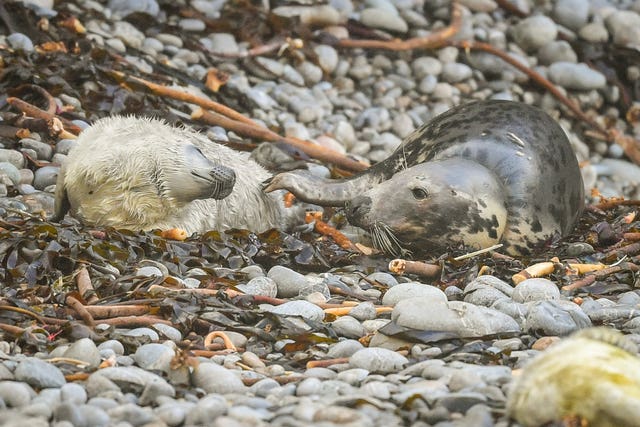Conservationists have warned of the dangers of ocean waste after an Atlantic grey seal was photographed at a breeding ground with fishing debris caught around her neck.
The images, taken by the PA news agency and released today, were taken on a remote beach in Pembrokeshire and show a female seal tangled in a piece of fishing net or line.
Her young pup is also shown in the pictures.

Mark Underhill, countryside manager for the National Trust, said: “Every day vast quantities of waste is being dumped into the sea and our wildlife is paying the price.
“Litter such as fishing nets and tackle does not simply go away and can pose a threat for decades, ensnaring all types of ocean life, as seen here off the West Wales coast.
“It has been three years since Blue Planet II and the groundswell of public support for cleaning up our seas and our rivers that followed.
“We have made good progress on coastal litter, but sea pollution remains a huge problem that we as a society must address if we are to protect our most beautiful places and diverse wildlife.”

The Atlantic grey seal is a protected sea mammal and one of the rarest species of seal in the world.
Global numbers are estimated to be around 300,000, with half living in British and Irish waters.
Natural Resources Wales monitors the seals in the Pembrokeshire Marine Special Area of Conservation.
Kate Lock, marine environmental assessment officer, said: “The problem with netting entanglement is of growing concern, especially with the high numbers recorded each year.
“In 2019, just in the area around Skomer Island, 28 individual seals were photographed with obvious signs that they were entangled at some point in their lives.”
Last year, the State of Nature report by 70 conservation charities including the National Trust highlighted the challenges faced by sea life in the UK.

These include declining fish stocks, loss of habitat and warming seas.
Incidents of entanglement and ingestion of plastics by marine animals are now widely reported, the National Trust says.
In 2019, it discovered that an uninhabited island in its care had been littered with elastic bands, which gulls were mistaking for worms.
A National Trust spokeswoman said removing rubbish and debris from the coast was diverting rangers’ time from vital conservation work.
She called on businesses and producers to consider how they dispose of materials that could cause harm to wildlife.





Comments: Our rules
We want our comments to be a lively and valuable part of our community - a place where readers can debate and engage with the most important local issues. The ability to comment on our stories is a privilege, not a right, however, and that privilege may be withdrawn if it is abused or misused.
Please report any comments that break our rules.
Read the rules here